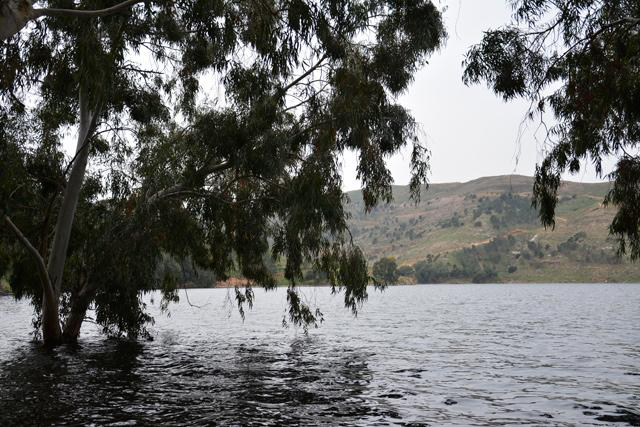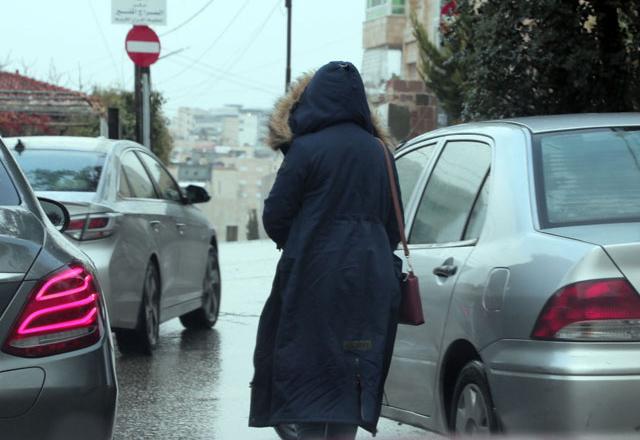AMMAN — Although still early to make conclusions as the wet season has not finished yet, officials said that the rain amount received so far is "modest and concerning."
Stopping short from further commenting on current water situation as a result of delay in rainfall, the Ministry of Water and Irrigation Spokesperson Omar Salameh only said, “Season has not finished yet and we are waiting."
Head of Jordan Meteorological Department (JMD) Raed Rafed told The Jordan Times that "until now the rainfall amount in most areas of the Kingdom is below the average, however the season’s outcome remains uncertain"
He said that the rainy season continues until mid-May, referring to "marbaniyeh”, the local name given to the 40 coldest days of winter and "khamsiniyeh," the local name given to the last 50 days of winter.
"It may happened that there are no rainfalls in most of the days but we may be affected by a depression or two that provide us with the water we need from the whole month," he said.
The JMD predicts rain by the end of next week, with February also showing potential for precipitation.
Former minister of water Hazim El Naser described the current water season as "dry and concerning."
In remarks to The Jordan Times, El Naser said, "By this time of year, rainfall usually accounts for 40-50 per cent of the long-term average in Jordan, but this year it is only at 11 per cent."
"The marbaniyeh, which usually contributes 30 per cent of annual precipitation, has fallen short of expectations. If this continues, it will be likely a difficult and dry season.”
"Even if it rains after January, rising temperatures in February will make it harder for the soil to absorb water, worsening the situation."
El Naser cited similar weather conditions in previous years, saying, "What is happening nowadays happened three times in the rain record in Jordan, Amman, and Jerusalem in the 1940s, 1960s, and 1999 ."
The expert attributed part of the situation to climate change, which impacts developing countries like Jordan.
“We pay a high price as a developing country because of emissions from industrial countries."
Naser also highlighted the political and regional effect on Jordan’s water challenges, citing the additional pressure the influx of refugees, particularly from Syria, has placed on Jordan’s limited water resources.
El Naser expressed hopes for a peaceful and stable Syria, which would allow refugees to return to their homeland and allow Jordan to settle the water issue with the northern neighbor.
He explained that, under former regime, Syria has violated
water-sharing agreements with Jordan, concerning the Yarmouk River.
“The previous regime did not respect the agreement between Jordan and Syria regarding the water of the Yarmouk River, and violated the agreement by building additional dams," he said.
The former minister said that the previous Syrian regime constructed 49 dams, far exceeding the agreed limit of 25, seizing most of the river’s water.
The over-extraction by Syrians of groundwater in the Yarmouk basin caused the drying of more than 12,000 wells which reduced between 180 and 200 million cubic meters of Jordan’s annual water inflow, he said


















